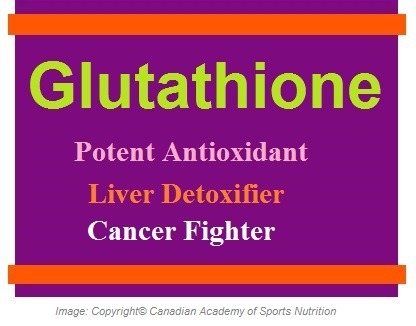Glutathione is one of the primary antioxidants in the body. It is a sulfur – containing  compound made of the three amino acids cysteine, glutamic acid, and glycine. The body needs vitamin B2, vitamin B6 and selenium to produce glutathione.
compound made of the three amino acids cysteine, glutamic acid, and glycine. The body needs vitamin B2, vitamin B6 and selenium to produce glutathione.
N – acetyl cysteine (NAC), alpha-lipoic acid (ALA), S – adenosyl methionine (SAMe), melatonin, milk thistle, glutamine , and methionine increase glutathione level. Regular consumption of acetaminophen especially acetaminophen overdose and smoking reduce glutathione level.
Natural Sources:
Glutathione is found in fish, egg whites, walnuts, whey protein, asparagus, and avocado. New studies indicate that mushrooms are rich in glutathione. Besides, cinnamon, turmeric, and cardamom can increase glutathione level.
Benefits of Glutathione:
The following conditions may benefit from Glutathione:
- Liver detoxification. The toxins styrene, polystyrene, methyl bromide, methylglyoxal, and methylene chloride (used as a coffee-decaffeinating agent) are detoxified by glutathione.
- Acetaminophen overdose or toxicity.
- Athletic overtraining syndrome.
- Prevention of colon cancer.
- Lung disorders, such as cystic fibrosis, asthma, and idiopathic pulmonary fibrosis (IPF), chronic obstructive pulmonary disease (COPD), as it may help improve lung function.
- HIV/AIDS.
- Neurodegenerative diseases, such as Alzheimer`s disease and Parkinson`s disease. Glutathione is one of the main antioxidants in the brain.
- Male infertility due to low sperm count.
- Chronic rhinitis.
- Cataracts
Dosage:
Glutathione is available in capsule and tablet, sublingual, and injectable forms. As a tablet or capsule, glutathione is used 100 – 500 mg daily depending on the case. Glutathione injection contains 200 mg per one millilitre of solution and is used intramuscularly or subcutaneously. The sublingual forms are in 50 mg and can be used up to 3 pills a day.

